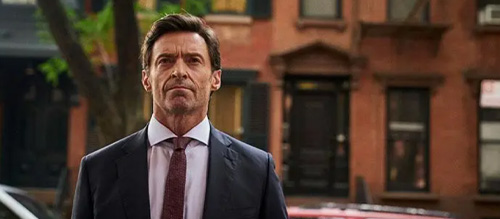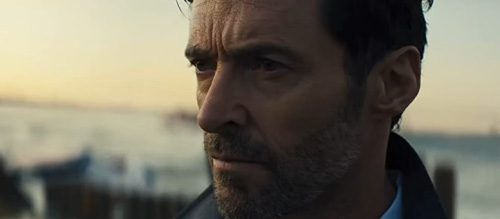The Son (2022) Review
The Son (2022)
Director: Florian Zeller
Screenwriter: Christopher Hampton
Starring: Hugh Jackman, Laura Dern, Vanessa Kirby, Zen McGrath, Anthony Hopkins
Back in 2020, French novelist and playwright Florian Zeller debuted The Father, an English-language film adaptation of his Molière Award-winning theatre production, “Le Père”. The Father premiered to both critical acclaim and commercial success, winning an Academy Award for Best Adapted Screenplay for Zeller and co-writer Christopher Hampton, as well as notching Welsh thespian Anthony Hopkins his second Oscar for his performance in the titular role. The amorphous structure of The Father transported us directly into the mind of Hopkins’ dementia-suffering protagonist in what was an overwhelmingly tragic but emotionally gentle tale of sympathy, compassion, and despair.
Naturally, the Frenchman has taken a similar approach with his second feature, The Son – collaborating with Hampton once again, Zeller has turned to his own body of theatrical work and adapted another of his stage plays, this time “Le Fils”, for the big screen. You could be forgiven then, for hoping that Zeller’s follow up to The Father might reach those same stellar heights. In stark contrast, however, Zeller loses all intricacy in the direction of his second feature, instead turning to emotional manipulation in a bid to garner sympathy and communicate distress in his representation of adolescent depression and suicidality.
A few years on from his parents’ divorce, seventeen-year-old Nicholas (Zen McGrath) continues to struggle with feelings of abandonment and neglect. His father, Peter (Hugh Jackman), has traded in a life with Nicholas in favour of one with his second wife (Vanessa Kirby) and their new-born son. But when Nicholas’ mother Kate (Laura Dern) realises that he has been flunking school to spend his days wandering the streets of New York City, Nicholas decides that he can no longer live with her, instead favouring the idea of moving in with his father and baby brother. Unable to process the stresses of everyday life, it is hoped that a change of scenery will be enough to snap him out of his mental fatigue.
Peter happily obliges, initially excited by the prospect of his son coming to live with him, assured in his parental capabilities that he can help Nicholas to move on from the depressive phase that has been affecting him. But, with a new family to take care of, as well as a career which finally begins to reach new heights, the timing of Nicholas’ emotional breakdown clashes with Peter’s life aspirations. A series of increasingly worrying red flags are not enough to open Peter’s eyes to the despair that Nicholas is suffering from, and his cries for help continue to fall on deaf ears. As Nicholas spirals further and further into his depression, his parents do little but hope that he will snap out of his despondent state.
The Son resembles, in a thematic sense at least, Felix van Groeningen’s delicately devastating Beautiful Boy, itself a personal story of mental struggle, addiction, and hopelessness. Where they stand apart, however, is in the subtle sensitivities at the core of their tragedies. Through Beautiful Boy, van Groeningan was able to craft a touching and poignant depiction of the internal battles faced by someone unable to see past their own demons. It feels authentic and genuine, largely because it drew on David Sheff’s first-hand memoir, faithfully conveying the emotions of a father witnessing the demise of his own child, understanding and admitting to his role in the downfall. Yet, despite all the narrative similarities, it could not feel more alien to The Son, which tries so aggressively to draw a reaction throughout Nicholas’ psychological breakdown.

Hans Zimmer’s melancholy soundtrack is, perhaps, most guilty of this – while, at times, the German maestro delivers strikingly intricate orchestral pieces, there are other occasions when the score feels overbearing, almost like a desperate act of emotional exploitation, an in-your-face attempt to communicate Nicholas’ trauma. Even in his rare moments of mental respite (one particular hip-thrusting dance sequence springs to mind), Zeller determines to bring the scene back to Nicholas’ anguish in the bluntest of ways, overextending Zimmer’s intense music, all-the-while directing McGrath to pull blank, vacant expressions in an attempt to hammer home just how despondent he truly feels.
An impassioned Hugh Jackman does his level best with such a superficial script, which comes as no surprise considering the Australian actively campaigned for his role after being so moved by The Father. Vanessa Kirby also warrants a special mention, giving her all in spite of the limited screen time she is afforded. Unfortunately, little can be said for the rest of the cast – too often, Laura Dern feels as if she’s just going through the motions, while Anthony Hopkins’ bit-part cameo as Peter’s father only really serves as a heavy-handed reminder that Peter himself is the true centrepiece at the heart of The Son. It’s because of this that Zen McGrath is so restricted in his performance, unable to truly delve into Nicholas’ character, which acts only as a plot device to examine Peter’s character more deeply.
By the rather callous conclusion, you’re left to feel rather numb, but not in quite the way that Zeller intends. He was able to catch lightning in a bottle in his first foray into filmmaking, and it was certainly always going to prove difficult attempting to do so twice, but The Son feels like a complete misjudgement from a director who has previously proven his aptness for gracefully exploring such serious issues. The French director’s next project will be a television adaptation of Stefano Massini’s play “The Lehman Trilogy”, allowing Zeller an opportunity to move away from adapting his own work, while providing him with the chance to reconfigure any future approach to material as sensitive as childhood depression.
Score: 6/24
Written by Jake Gill
You can support Jake Gill in the following place:
Twitter – @Jake95Gill


